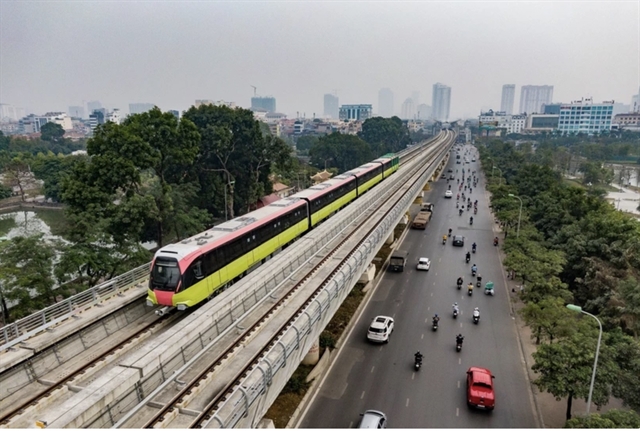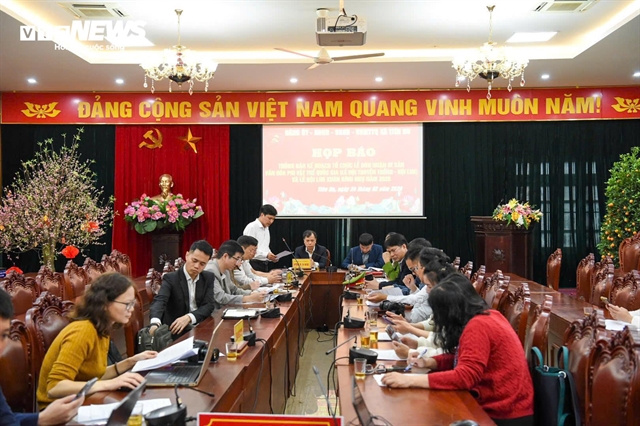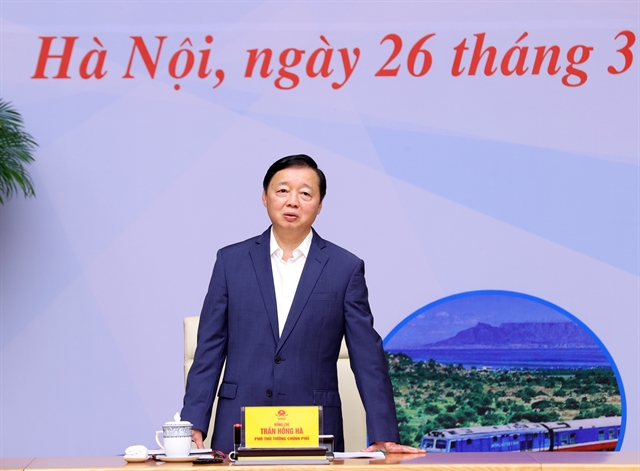 Society
Society

 |
| Deputy Prime Minister Trần Hồng Hà speaking at the meeting. VNA/VNS Photo |
HÀ NỘI - Deputy Prime Minister Trần Hồng Hà stressed the importance of completing the investment plan for high-speed rail lines during the second meeting of the Steering Committee for the Construction and Implementation of the proposal for investing in high-speed rail lines on the North-South axis and other vital national railway projects.
The March 26 meeting aimed to ensure consistency and uniformity in standards across all aspects, including design, infrastructure, vehicle systems, information systems and operations.
Highlighting the necessity of high-speed rail development for an industrialised and modernised country, Hà emphasised its role in reducing logistics costs, enhancing economic competitiveness and contributing to green transformation.
He urged the Ministry of Transport to absorb, explain and clarify the opinions expressed during the meeting, stressing the importance of retaining central stations in major urban areas with symbolic significance while ensuring safety corridors through elevated or underground routes.
Furthermore, the Ministry of Transport was tasked with exploiting the economic efficiency of high-speed rail, drawing from international experience in integrating passenger and freight transport, outlining capital mobilisation plans and phased investments, establishing organisational models for synchronised management and operation, and devising plans for technology transfer to bolster domestic railway industry development.
According to the Ministry of Transport's report, the high-speed rail line, designed for speeds of up to 350 km/h, will cater to both passenger and freight transport. Existing railway lines will be repurposed to accommodate freight transportation.
A recent collaboration between the Ministry of Transport and the General Statistics Office has assessed the North-South high-speed railway project's economic impact, estimating a potential contribution of around 1 per cent to annual GDP growth from 2025 to 2037.
In addition to this, the Ministry of Transport and related agencies have refined the capital mobilisation plan, evaluated its impact on public debt, devised a human resource development strategy, and outlined directions for the development of the railway industry.
Efforts are also underway to renovate and upgrade existing railway lines for optimal functionality. The Project Management Board has been tasked with preparing investments for projects deemed nationally significant, such as the Lào Cai - Hà Nội - Hải Phòng line along the East-West economic corridor and others connecting various regions.
However, Deputy Minister of Transport Nguyễn Danh Huy highlighted challenges, including the large scale and complex technical standards of these projects, requiring meticulous planning and close coordination among ministries, sectors and localities.
While national railway projects offer substantial economic benefits, their financial efficiency is not always high, necessitating significant state budget allocation, according to Huy.
Furthermore, the railway industry's current limitations include a lack of domestic production for railway vehicles, equipment and spare parts, as well as a shortage of skilled personnel in management and technical roles, highlighting the need for further development in these areas.
Professor Doctor Lã Ngọc Khuê, former Deputy Minister of Transport, stressed the importance of high-speed rail lines not only for passenger transport but also for addressing cargo transport bottlenecks in Việt Nam. He emphasised the need to change the transportation market's structure to reduce logistics costs and advocated for international railway line connections. While inland waterway and maritime transportation offer cost advantages, they are time-consuming and involve multiple loading and unloading processes, presenting an opportunity for the railway sector to regain market share in long-haul freight transport and to enhance economic competitiveness.
Former Deputy General Director of Việt Nam Railway Corporation, Vương Đình Khánh, advised careful consideration of utilising the existing railway line solely for freight train operations and proposed investing in the railway industry, particularly in manufacturing locomotives and carriages, alongside implementing high-speed railway projects.
Furthermore, there were suggestions regarding the necessity of proactive mechanisms and policies to mobilise resources and innovate approaches, given the current reliance on foreign technology and engineering expertise. VNS




